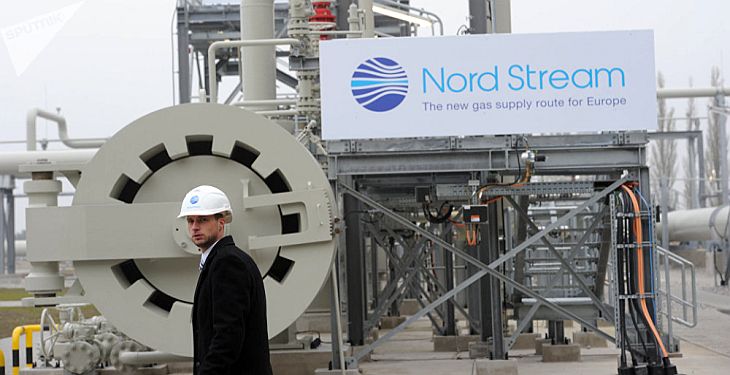Germany will not withdraw its political support for the Nord Stream 2 gas pipeline with Russia, its foreign minister said on Monday (3 December), as some lawmakers suggested curtailing the project to punish Moscow for its seizure of Ukrainian ships and their crew.
Russia is resisting international calls to release three Ukrainian ships seized last month in the Kerch Strait, which controls access to the Sea of Azov near the Crimea region that Moscow annexed from Ukraine in 2014, according to Euractiv.com.
Moscow accuses the 24 sailors of illegally entering Russian waters by trying to pass through the strait. Kyiv says the sailors did nothing wrong, and its ships have the right to pass through the strait to reach Ukrainian ports in the Sea of Azov.
Several German lawmakers have linked the standoff to support for Nord Stream 2, an $11 billion pipeline from Russia to Germany under the Baltic Sea.
But Foreign minister Heiko Maas, a member of the Social Democrats, junior partners in Chancellor Angela Merkel’s coalition, told reporters the pipeline was a commercial project that would continue even if German firms pull out.
Remaining part of the project gave Germany political influence, including over Russian energy policy towards Ukraine, Maas said.
“It would still be built, but there would not be anyone advocating for alternative gas transit through Ukraine. That is why we consider it important to remain engaged politically.”
The pipeline project aims to double capacity of the existing Nord Stream 1 pipeline from next year, bypassing traditional routes through Ukraine.
Germany has insisted Ukraine should continue to play a role – and receive revenues – for allowing gas shipments across its territory. Merkel secured a pledge from Russian President Vladimir Putin on the issue in August, Maas said.
Russia’s Gazprom is the sole shareholder in Nord Stream 2, shouldering half of the construction cost. Its Western partners are Germany’s Uniper and Wintershall , Anglo-Dutch group Royal Dutch Shell, France’s Engie and Austria’s OMV.
The United States, also keen to export gas to Europe, argues that the pipeline will harm Ukraine’s economic interests and leave Germany dependent on Russia for decades to come.
